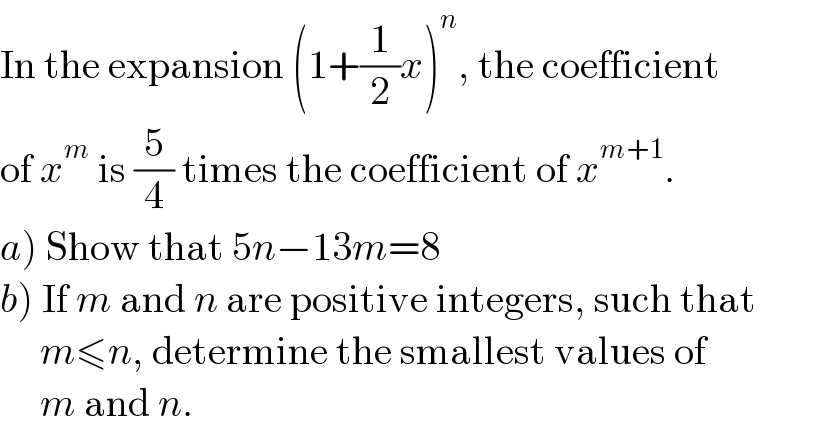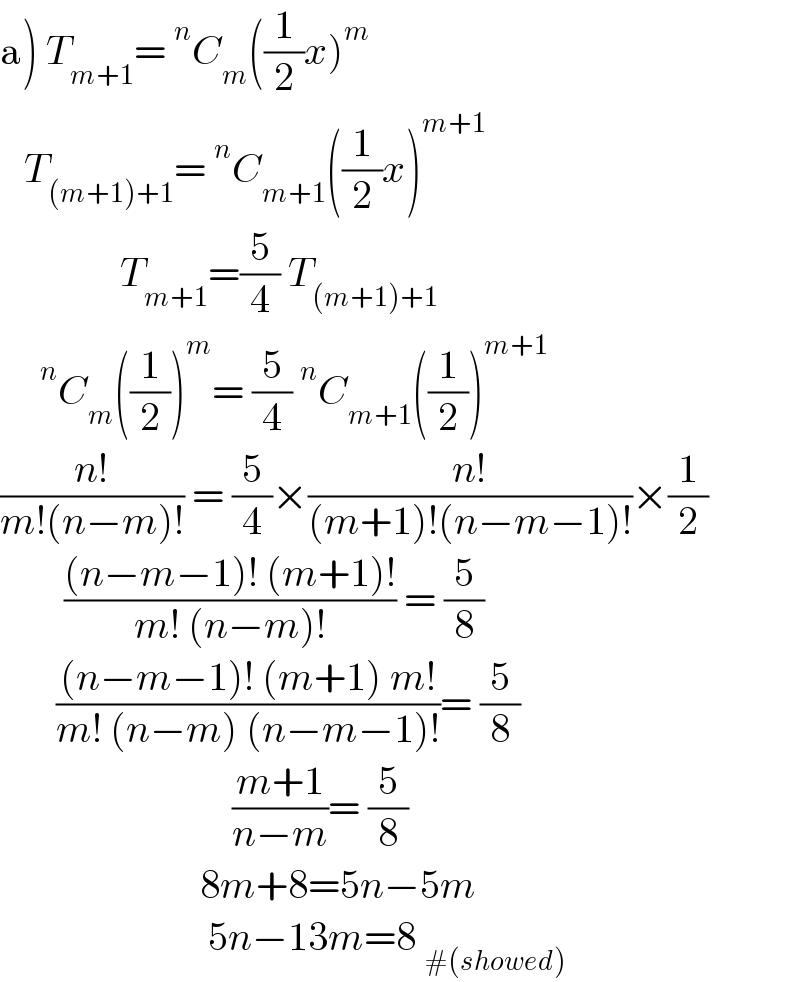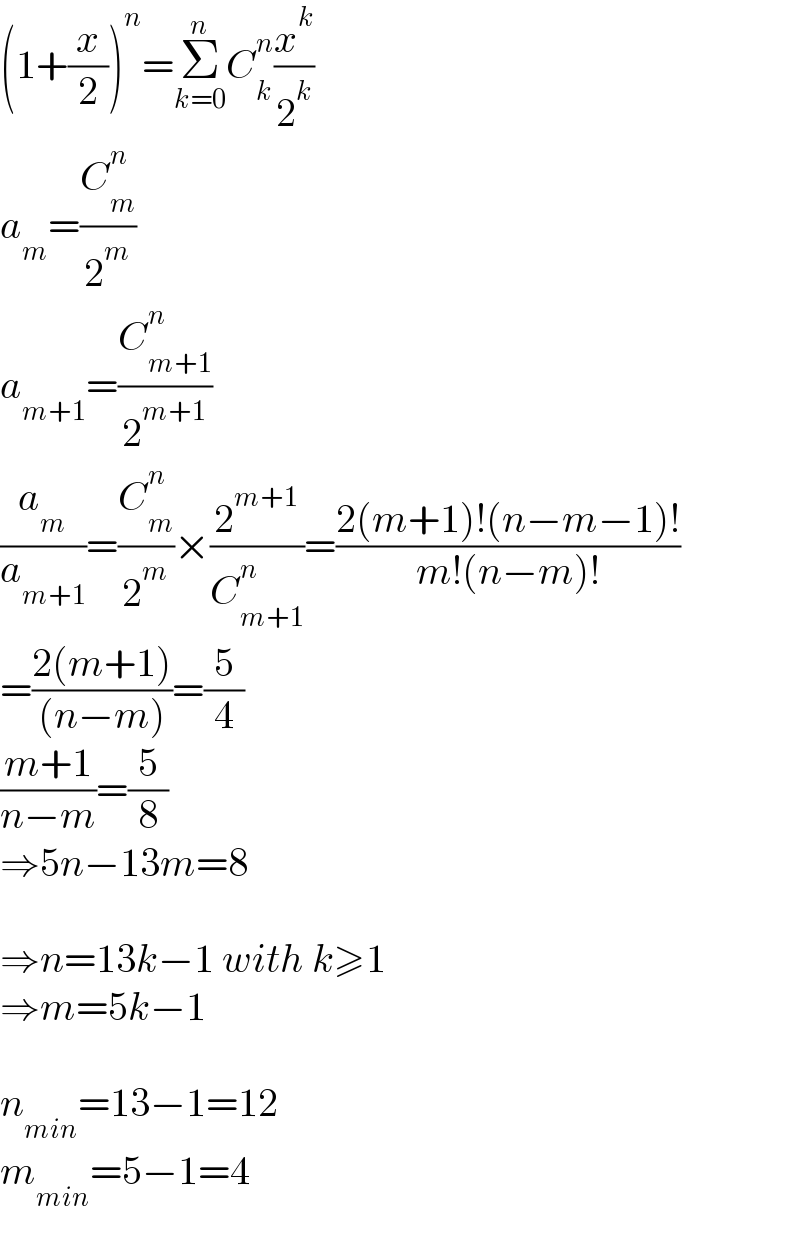
Question and Answers Forum
Question Number 154225 by ZiYangLee last updated on 15/Sep/21

Commented by ZiYangLee last updated on 15/Sep/21

Answered by mr W last updated on 15/Sep/21

Commented by ZiYangLee last updated on 15/Sep/21

Commented by Tawa11 last updated on 15/Sep/21

